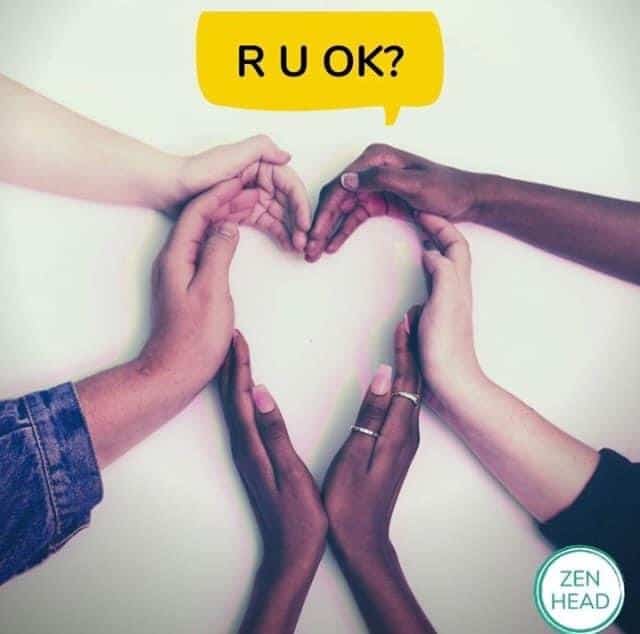Today is apparently ‘Are you OK? day’.
It makes me so sad that humans need to have a day to ask one another if they are OK.
What has this world come to?

I will never forget how shocked I was, moving abroad for the first time, almost 20 years ago, when I realised the question ‘How are you?’ had absolutely no meaning in the western world.
I remember people getting very uncomfortable with me taking my time, answering on their question truthfully, expressing how I felt in the moment. Quickly I’ve learned – this was against ‘The Protocol’.
When asked ‘How are you?’ answer is expected to be quick, short and pleasant: ‘Good, thank you.’
Many times I couldn’t believe how many people wouldn’t even look at me while shaking my hand and asking me how I am.
The message to me was clear:
I don’t care how you are.
I don’t have time to care how you are.
I am not paid to care how you are.
That is just a bloody phrase, it doesn’t mean a thing. I don’t have the whole day to listen to your answer.
I often wondered if capitalism was to blame for it. Was it because of that system money making became more important than – caring?
Coming from the culture where question ‘How are you?’ is much more than just a polite phrase, it took me a long time to adjust to a quick and careless how are you BS protocol.
My heart has never accepted it.
Mentioning all this on ‘Are you ok? day’, it doesn’t come as a surprise that in western world, more than in any other culture, mental health issues, depression and suicide rates are so shockingly high.
I think it’s time to ditch our polite phrases:
How are you?
How is it going?
How are you doing?
How are you going?
It is time to ask some real questions:
How are you feeling?
What do you need?
How can I help?
IT IS TIME TO REALLY CARE.
As always, it starts with ourselves.
As if we ‘don’t have time’ to care how we are, we certainly won’t have time to care for others.
Our world is in desperate need of our care.
I am curious to hear from people from other cultures – what does the question: ‘How are you?’ mean in your language?
Conquer your mountain!

